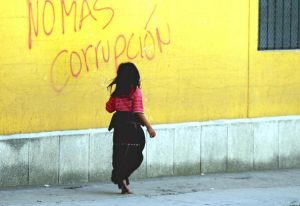I think the article I chose for this week nicely touches on our themes of encounters and identities in Latin America, as it deals with the migration of citizens from one Latin American country to two other Latin American countries. The article is called “How Latin America Is Responding to Venezuelan Refugees” and emphasizes how Latin American countries have been accepting of refugees, and welcoming them with open arms. The article specifically mentions Peru and Brazil, and how there are governmental gaps that may worsen the situation if not taken care of. The two main issues are the governments being reactive rather than proactive, and a lack of communication about policies to refugees themselves. The article then breaks down the issues by country that refugees may face.
In Peru, the government has passed a temporary work study permit that is specifically targeted to Venezuelans for the length of one year, although it can be renewed. They also passed an asylum law that applies to Venezuelans who left due to persecution or violence. However, these policies aren’t adequately explained to migrants and refugees, leading to confusion and difficulty in applying for permits or refugee status. The work study permit, called PTP, shouldn’t be considered a form of protection according to the article, as it only briefly covers fundamental rights. Many people have applied for PTP when they qualify for refugee status, just because they don’t know that they qualify, making the government ineffective at properly helping refugees.
In Brazil, there was no law on migration or reception program/system until 2017. There was however, a refugee law, allowing migrants to stay in the country while a committee rules on their case. The refugee law allows for migrants to work and have access to public services. After pressure from citizens, Brazil passed a law granting temporary residence to Venezuelans, giving them work permits and temporary residency. However, many Venezuelans are unaware of this and still apply for refugee status, as well as the temporary residence permit being expensive.
I found this article to be very good at explaining the issues, but still applauding these countries for taking the steps they did.



